Ukraine’s Eurovision-on-the-Mersey
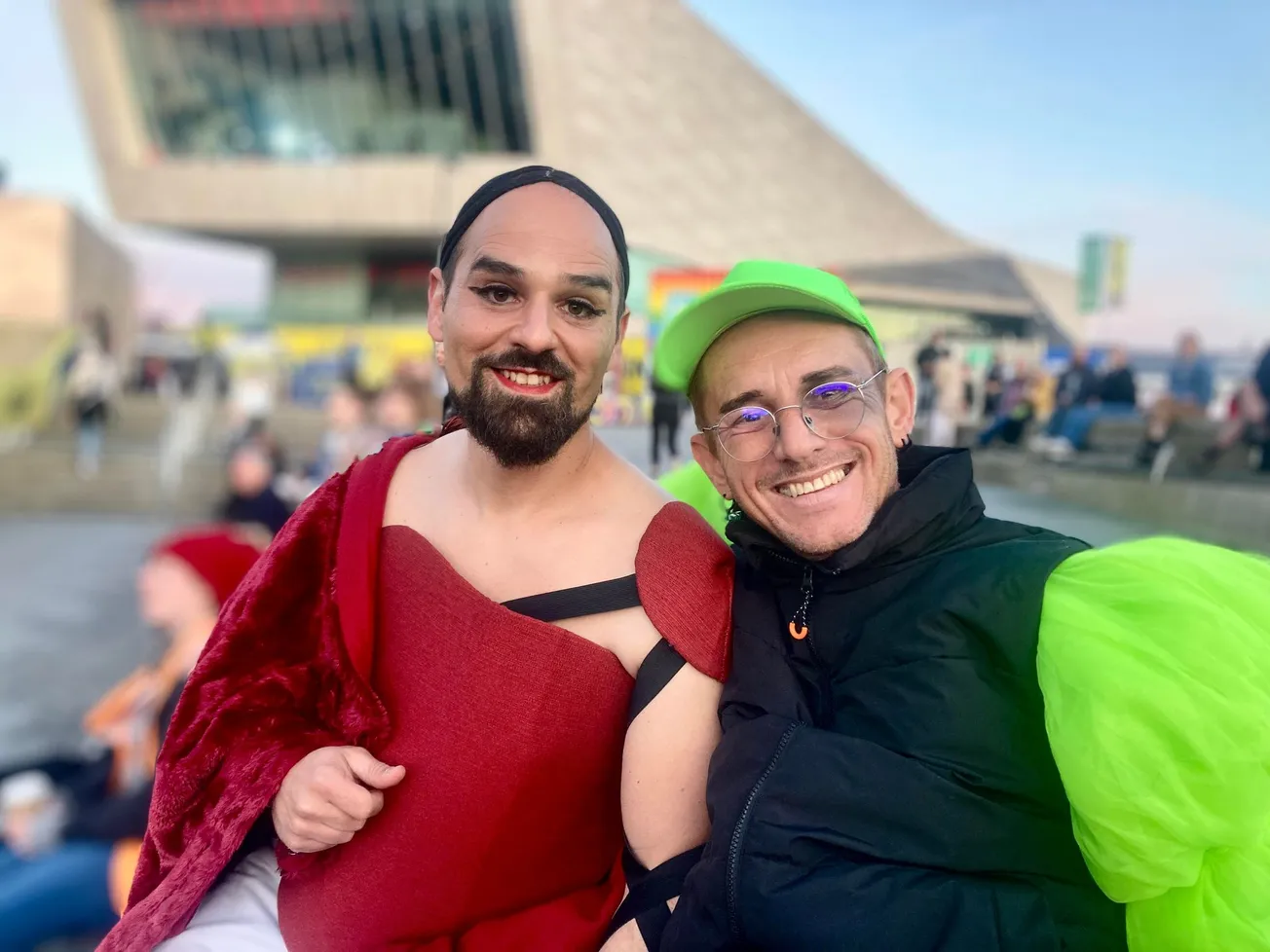
‘I’ve spoken to people all over the world here this evening, we’ve sung songs in all different languages together. Where else are you gonna get that vibe?’
Andrei clasps an inflatable tomahawk in one hand and steadies his friend with another. It’s late, but the party at Pier Head shows no signs of winding up. Their outfits exist in a kind of nether-zone between Europop and feudalism. Chain mail and VO5. They’re both from Belarus, but while Andrei lives locally, his friend is visiting. And he’s been lured into tourist Liverpool’s most dangerous trap: he’s staying at the Adelphi Hotel.
“I said to him — this place is less safe than Belarus man,” Andrei laughs.
Belarus isn't performing at this year’s Eurovision. Last time they did, in 2021, they were kicked out after putting forward a band whose lyrics mocked anti-government protests which briefly threatened the dictatorship of close Putin ally Alexander Lukashenko, the country’s president. Lukashenko backed Putin’s invasion of Ukraine, and has allowed Russian missile launchers stationed on its territory to shoot at Ukrainian targets.
Many Belarussians have fled in the past few years — including people Andrei knows — while others have been imprisoned back home. One of the political prisoners currently arrested is a Liverpool fan, Andrei explains. He sits in his cell singing You’ll Never Walk Alone. His name — I later find out — is Andrei Aliaksandrau and he was sentenced to 14 years in a penal colony on spurious charges of high treason, amongst other things. “Many people at home are scared to say a word that goes against [the] government,” he continues as a man in a Union Jack zoot suit with a bowler hat momentarily steals his gaze.
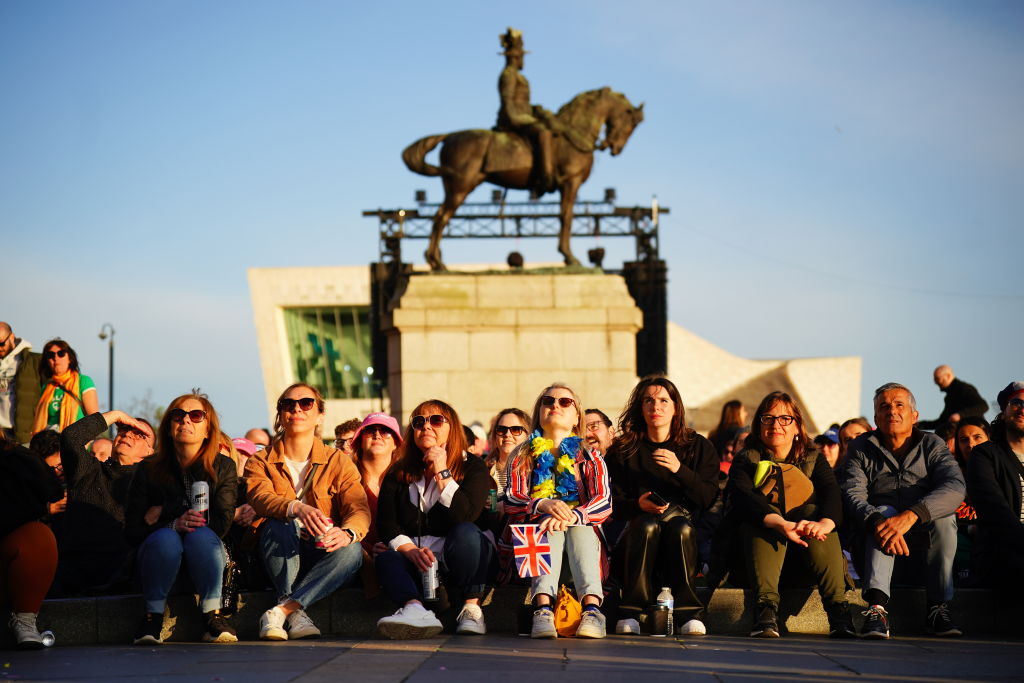
Though neither men live in Belarus, they both have family who do. Families who live in fear, who choose their words carefully even on video calls. Andrei is keen to make one point clear though: “This is just how it is in Belarus, so how must the people of Ukraine feel?”
Of course, Ukraine, and Russia, cast whatever shadows fall on this sunny stretch at Pier Head. It certainly doesn’t feel like yesterday that a pre-Sugarbabes Jade Ewen belted an Andrew Lloyd-Webber hit across Moscow’s Olimpiysky Arena during Eurovision 2009. Ukraine won last year’s Eurovision on a tidal wave of supportive sentiment from around the world but couldn’t host the competition because of the war. That’s why it’s here (we came second in the vote), and it’s why Liverpool has turned blue and yellow this week, trying to pull off an event that is both an epic party and a rallying moment for a country that is fighting for its life.
It’s a fine balancing act though; no-one I meet has come to mope. Andrei starts slapping the handle of his Tomahawk with a flat palm and hooting with laughter when his friend — whose name I don’t quite catch — makes a joke, which I also don’t quite catch. It’s loud here — loud and glitzy and colourful and everything that people who love Eurovision were hoping that a Eurovision in Liverpool would be.
With no Belarussian involvement, Andrei and his friend are floating voters for the Grand Final. Andrei is torn between Norway, because the song is stuck in his head, and Sweden, because he expects them to win. His mate, drinking a contraband Red Stripe which — judging from the way his eyeballs turn somersaults and his feet search for stability — isn’t his first, explains the mechanics of his own somewhat cruder decision-making process: “whoever has the best GIRLS man”.
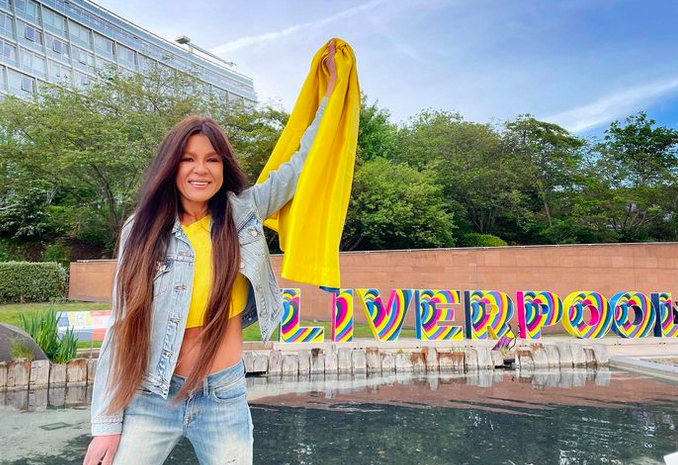
Later I catch up with someone’s whose Eurovision experience this year captures its strange juxtapositions better than anyone else. Ruslana, Ukraine’s own Eurovision royalty, who won the event in 2004 with what was then the most votes ever received by a contestant. Wild Dances — her track recorded in Peter Gabriel’s UK studio — launched her career, which has since included political activism and international honours from the American government.
Ruslana had an audience with Rishi Sunak in the morning. In the afternoon: an audience with The Post. Judging from the passion in her voice as she speaks, it sounds like she doesn’t see it as a step down. In motor-mouthed speech she waxes lyrical about a park — she can’t remember which — “with incredible views over the whole city”. “I love it,” she says. “I love it!”. It isn’t just the park she loves about Liverpool though. It’s also the children (“dynamic!”), the music (“legendary”), the “vibrations” (“so, so inspiring!”), Paul McCartney (of course) and so many other things my pen can’t keep up and I’m left with unintelligible scrawled lines across my notepad. No journalist’s shorthand could surely be up to speed with Ruslana’s love of Liverpool.
“Everton Park!” she shouts suddenly. “I am so inspired by this place”.
Tim from Warrington is equally inspired. He was on a train passing through a tunnel when Graham Norton had the envelope in his hand ready to announce the host city. His phone lost signal and buffered. A moment of unbearable tension. “It added to my own drama of the moment. The delayed gratification of it. I was overjoyed,” he says.
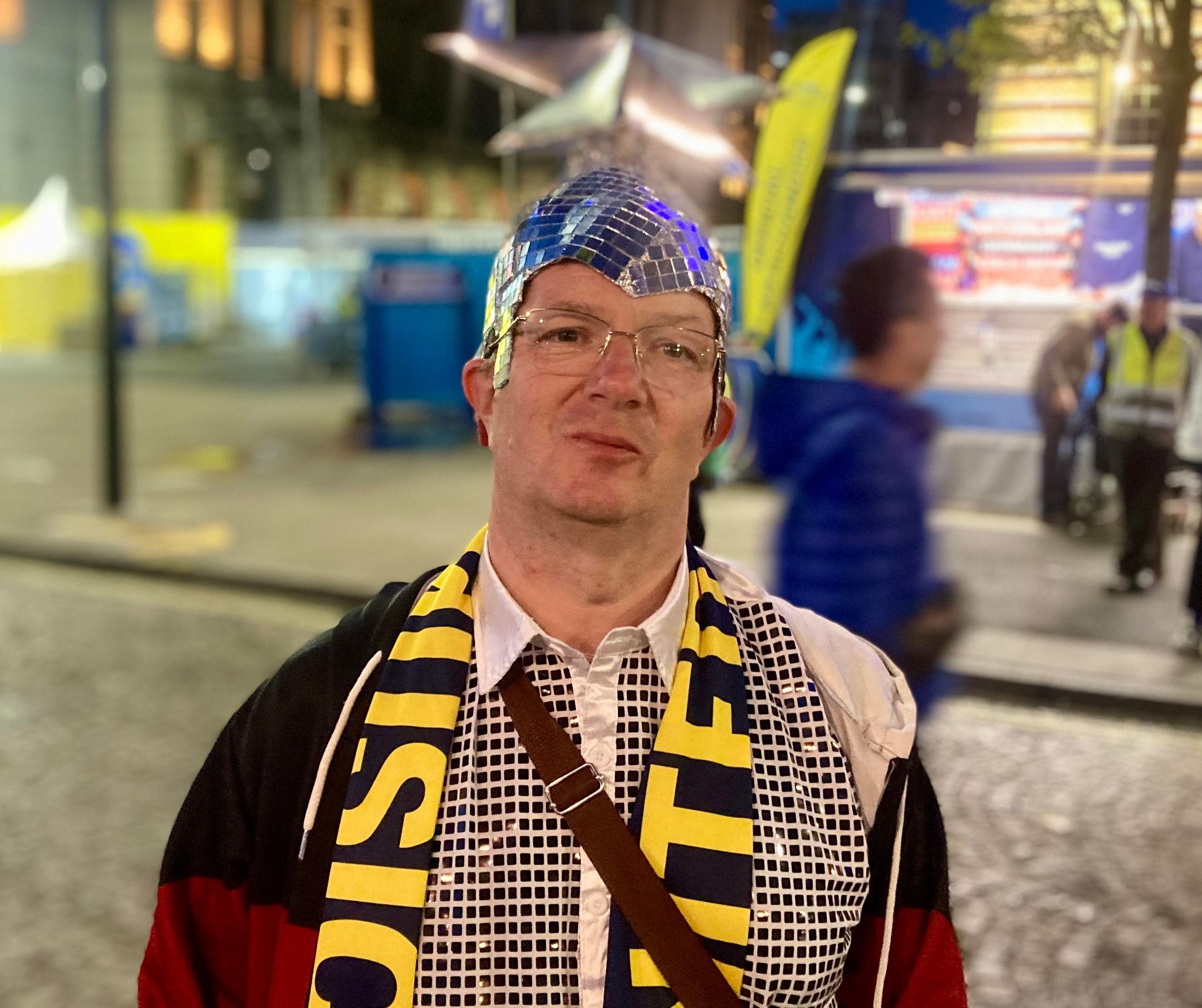
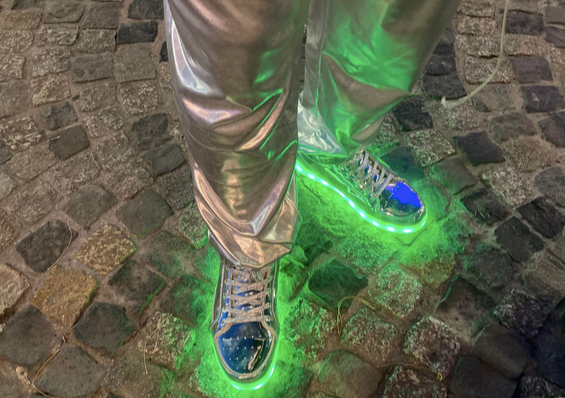
Tim has the zeal of a missionary on all things Eurovision. “I’ve seen people criticise [it] as being cheap but it isn’t. There’s a real effort that goes in, of effort and time,” he says. No one defines this quite like he does. His outfit took two full days to make and his shoes look like they’ve been lent from the Back to the Future prop department. A labour of love. They light up! With his hat — the home-made product of cling film, paper mache and kitchen foil — a silver star protrudes from a disco-ball headpiece (a nod to Ukraine's 2007 entry Verka Serduchka, Ukraine, obviously). “I’ve spoken to people all over the world here this evening, we’ve sung songs in all different languages together. Where else are you gonna get that vibe?”
The council’s £2 million spend currently looks like the soundest of sound investments — not a tag they’ll be used to wearing over at the Cunard — but a point worth making nonetheless. This Eurovision has been a well-executed tightrope walk thus far, a chance for the city to bask in the world’s gaze without detracting from the would-be hosts who had to pass on the baton.
It’s tempting to look at this event through a purely Liverpool lens, and tell a story of a possible watershed moment; a grand success for a city that needs one, an opportunity seized to sell a new narrative to the world. Certainly, there are enough stalled developments along the stretch of docklands alone — a little out of earshot of the Eurovision Village — to run an open-bus tour every bit as popular as the Beatles-themed ones. But I’m sure Andrei and co don’t want to hear about the travails of North Point Global and the ill-fated Festival Gardens, so I’ll spare them.
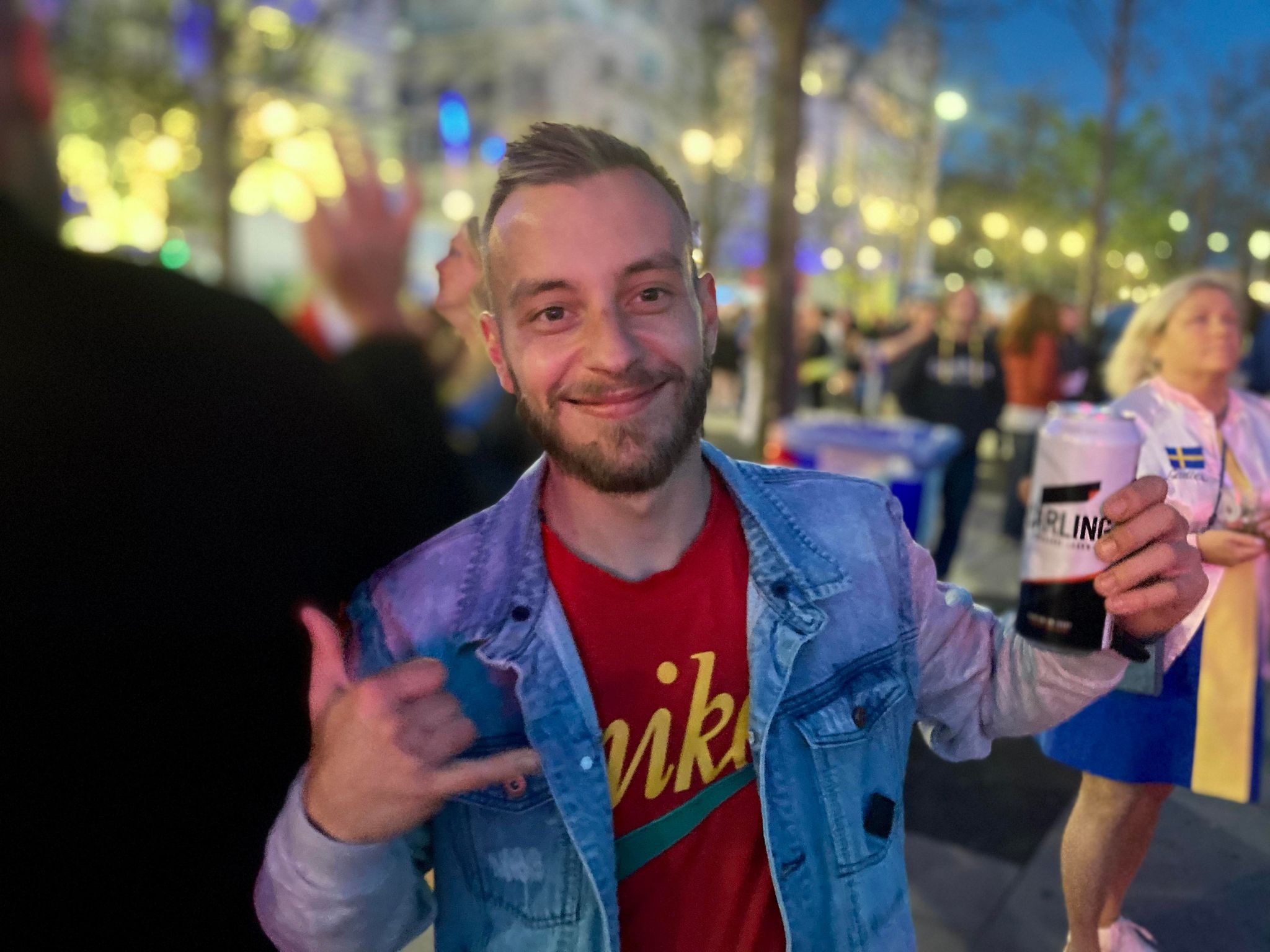
Rebirth, renewal, a phoenix rising from the ashes (of either the last few years or even the 80s). Toxteth, Thatcher, etc, etc. Those are all tempting framing devices — and far from irrelevant ones. But playing surrogate host also offers a healthy dose of perspective. I’m not sure what the correct term for the destruction of several cities with an endless cascade of bombs might be, but I am sure “managed decline” would qualify as an understatement.
“All Ukrainians every day are getting information from Liverpool and watching what is happening,” Ruslana says. “I speak to people on the first line — they are really thankful and really happy. We will never forget this moment…we have seen the horror of cities totally destroyed by Russian occupation. You really make us stronger with any event you organise”.
Gareth and Samuel from Spain are sitting next to the water in the main village. It’s Samuel’s third Eurovision. Gareth’s first. How did they meet? They laugh. “Online.” When they started talking on a dating app they were listening to the top 250 together, and they bonded over music — Eurovision in part — and romance blossomed from there. When the Spanish entry qualified they both cried. Round the corner are Nadav, Dolev and a friend whose name may also end in v, all from Israel. They’ve arrived today. They’ve got Israel flags tied around their necks and swig from a cheap bottle of wine. “Great job, great atmosphere!” they say, virtually in unison.
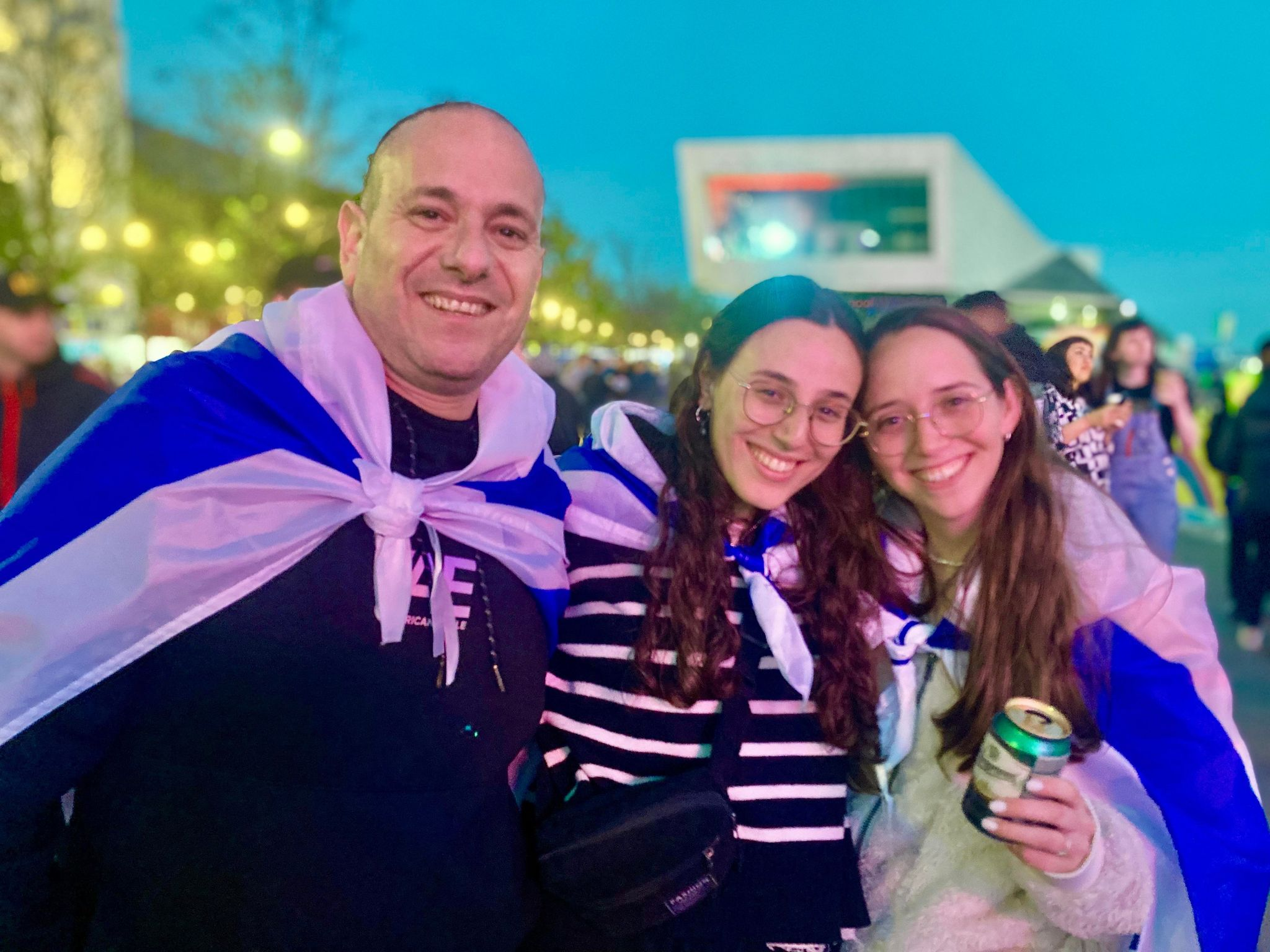
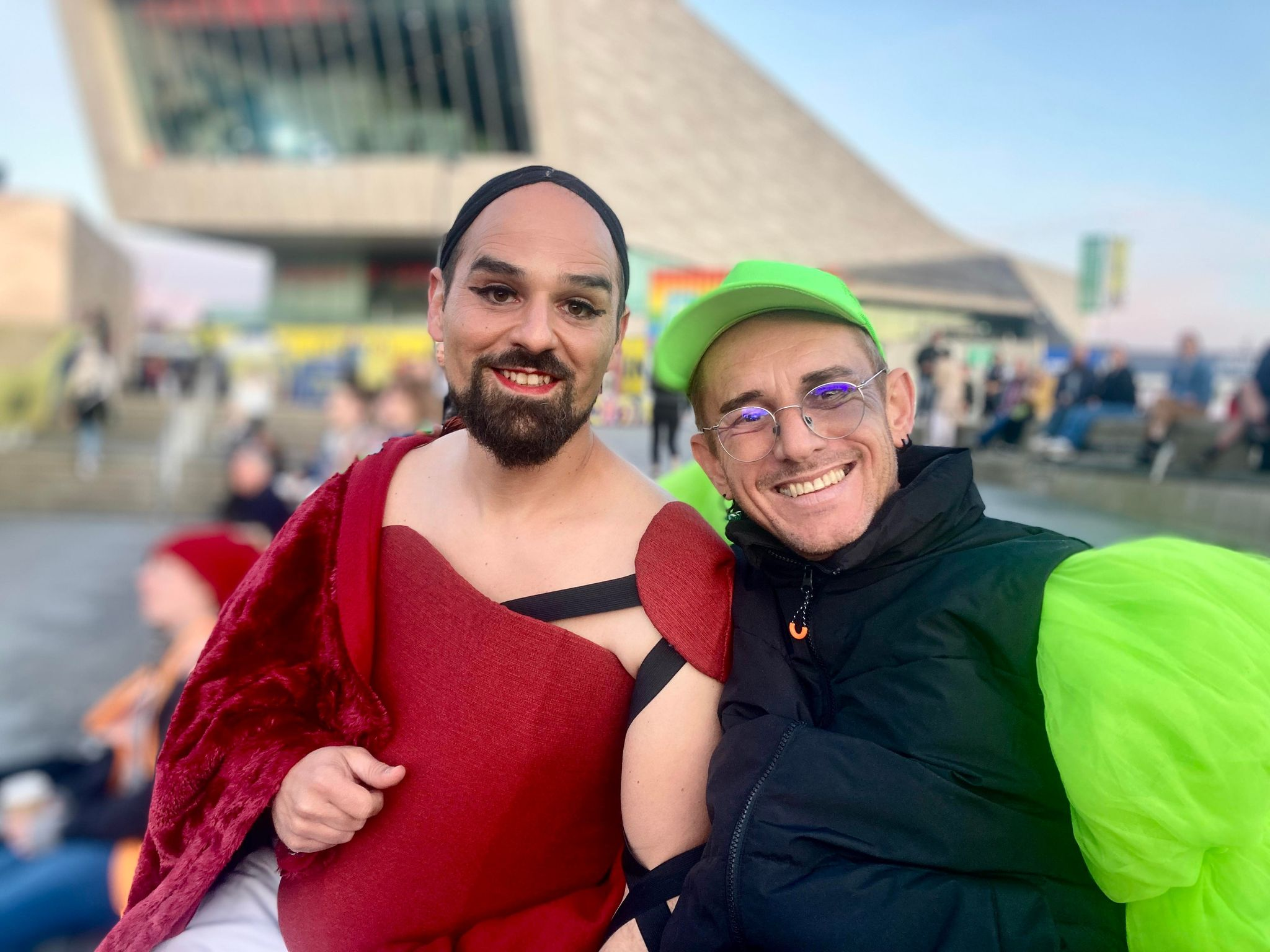
During the Cold War the Soviet Union formed its own version of Eurovisions, called Intervision, and one year a singer — pent up with excitement and desperate to win — launched into a cartwheel on stage. Unfortunately, her skirt fell down in the motion and, in the words of Jerzy Gruza, the Polish director of Intervision, “she revealed everything to the judges.” Gruza said he would never forget the face of the Soviet ambassador sitting in the front row. “We laughed like hell,” he added.
There’s a perverse poignancy to that kind of slapstick when it occurs behind the Iron Curtain. It’s joy in the face of bleakness. And it’s years like this one that all the high camp costumes and arseing around by the Bailey’s booth feel like — if not direct acts of resistance — then at least underscored by something more significant. There are Ukrainians right this minute enjoying raves in Kyiv as DJs shout “let’s hear it for Liverpool baby!” over remixed electro-ABBA. Probably.
And the glammed-up Israelis down Pier Head with the cheapest nastiest looking bottle of Tesco paint-stripper, or the viking-helmet wearing Slovak looking lost on the docks and asking for directions to Weatherspoon, are our extension of that. Or Andrei’s mate with the pointed hat and the greedy laughter, gurgling Red Stripe like a mad wizard of indulgence. He hasn’t forgotten what’s going on back home — far from it — but he’s gonna enjoy himself while he’s here nonetheless.
I head back, but the party energy has spilled up over the banks of the Mersey and it’s flooding the city centre streets. I keep hearing that Liverpool has embraced Eurovision heart-first, that it’s a city amped up, thriving under the bright lights. And if that’s true then for no-one is it truer for than the 40-strong pack of glitzy Union Jack-wearing women who come cascading down Bold Street past me. They move like every hen do of their lives was merely training for this cherished moment.
“LAUREN”, one shouts nearly the full length of the street. Lauren swivels. “YESSS GIRL!”

Comments
Latest
Get ready: the Aloft trials are coming
Michael Heseltine 'saved' Liverpool. Didn't he?
Cheers to 2025
Searching for enlightenment in Skelmersdale
Ukraine’s Eurovision-on-the-Mersey
‘I’ve spoken to people all over the world here this evening, we’ve sung songs in all different languages together. Where else are you gonna get that vibe?’